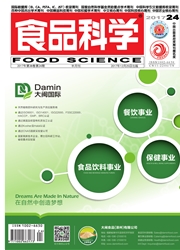

 中文摘要:
中文摘要:
益生菌是指当以足够数量存在时可对机体健康产生有益作用的活的微生物。近年来,由于其对机体具有保健和治疗作用,因而受到越来越多的关注。生物被膜是细菌分泌的多糖,纤维蛋白和脂蛋白等物质将细菌自身包裹其中,吸附在生物材料或机体腔道等表面而形成的膜样复合物,是自然状态下许多细菌所选择的生存方式。但是关于益生菌生物被膜的研究还比较少,且尚处于起步阶段。本综述围绕益生菌生物被膜的形成、阶段特征、影响因素、优势及调控机制等展开分析,并指出益生菌生物被膜的相关研究将会是益生菌研究领域的一个重要发展方向。
 英文摘要:
英文摘要:
Probiotics are defined as ‘live microorganisms which when administered in adequate amounts confer health benefits to the host'. In recent years, probiotics have gained increasing attention due to their therapeutic effects. Biofilms are formed by multiple bacterial cells attached to a surface that arranges themselves into a complex tertiary structure encased in an extracellular matrix comprised of carbohydrates, proteins, and other macromolecules, which constitute the majority of bacteria in most natural ecosystems. However, little research has been done concerning probiotic biofilms. Therefore, the formation, characteristics, influencing factors, advantages and regulatory pathways of probiotic biofilms are discussed in this paper. In the future, probiotic biofilms will be an important research area.
 同期刊论文项目
同期刊论文项目
 同项目期刊论文
同项目期刊论文
 期刊信息
期刊信息
